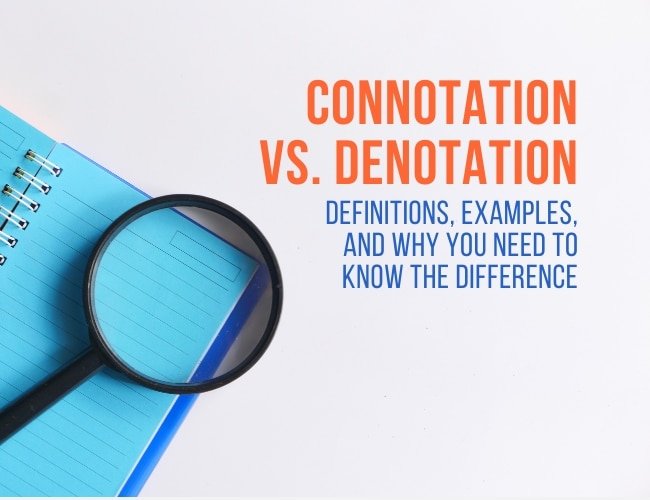Words are more than just definitions printed in black and white on a page—they’re vessels for emotion, culture, and subtle implication. If you’ve ever accidentally offended someone by calling them “cheap” instead of “frugal,” then you’ve stumbled upon the crucial (and sometimes costly) difference between connotation and denotation. While the two may seem interchangeable at first glance, they function in surprisingly different ways.
So, what sets them apart? And how can understanding both make you a better communicator or writer?
Let’s unpack the layers.
Denotation: The Literal Backbone
Think of denotation as the skeletal structure of a word—its dictionary definition, free from emotion, cultural baggage, or implied judgment. It’s what a word technically means, regardless of how people feel about it.
Take the word snake. Its denotative meaning is simple: a limbless, slithering reptile. Nothing more, nothing less.
Words like beautiful, handsome, attractive, and pretty all share a denotative similarity—they describe someone or something that is pleasing to the eye. These literal meanings are reliable and consistent across most uses.
Connotation: The Emotional Undercurrent
Now here’s where things get interesting. Connotation refers to the emotional or cultural resonance a word carries—what it suggests beyond its literal meaning. While denotation defines, connotation colors.
Let’s return to our earlier example: frugal vs. cheap. Technically, both imply spending money carefully. But frugal comes across as sensible and wise—a positive trait. In contrast, cheap often suggests stinginess or a lack of generosity—definitely not a compliment at dinner time.
The beauty (and danger) of connotation lies in its subtlety. It’s like tone of voice in written form. Two words may denote the same thing, but their connotations can push your message in entirely opposite directions.
The Three Shades of Connotation
To make things clearer, connotation can generally be grouped into three categories:
1. Positive Connotation
Words that imply something favorable or admirable.
Frugal is a great example—it suggests smart money management, not penny-pinching.
2. Negative Connotation
Words with an unfavorable emotional load.
Cheap, while technically similar to frugal, evokes the idea of being miserly or ungenerous.
3. Neutral Connotation
Words that don’t lean strongly in either emotional direction.
Economical, for instance, tends to be neutral. Whether it takes on a positive or negative tone depends entirely on context.
Why Does This Matter?
Mark Twain once said, “The difference between the right word and the almost right word is the difference between lightning and a lightning bug.” And when it comes to choosing between connotation and denotation, that quote hits the nail on the head.
Words have power—not just in what they say, but in how they make people feel. That’s why a word like slimy can seem harmless when describing a slug or wet seaweed, but instantly turns into an insult when aimed at a person. Suddenly, the term implies untrustworthiness or sleaze. Same dictionary definition. Entirely different effect.
When writing or speaking, it’s essential to be aware of these underlying meanings. Whether you’re crafting a poem, pitching a product, or just texting a friend, your choice of words can alter the tone and outcome of the interaction.
The Takeaway: Word Choice Matters
Language is a playground, but it’s also a minefield. Each word carries more than just its definition—it carries intent, tone, and unspoken meanings. Understanding the difference between connotation and denotation is key to navigating this space effectively.
Before calling someone stubborn, consider whether determined might be a better fit. Instead of pushy, perhaps assertive paints a kinder picture. The message is the same in terms of denotation, but the connotation changes the emotional response.
So the next time you find yourself reaching for the perfect word, take a second to think not just about what it means, but also about what it says between the lines. That’s where the real magic of language lives.


